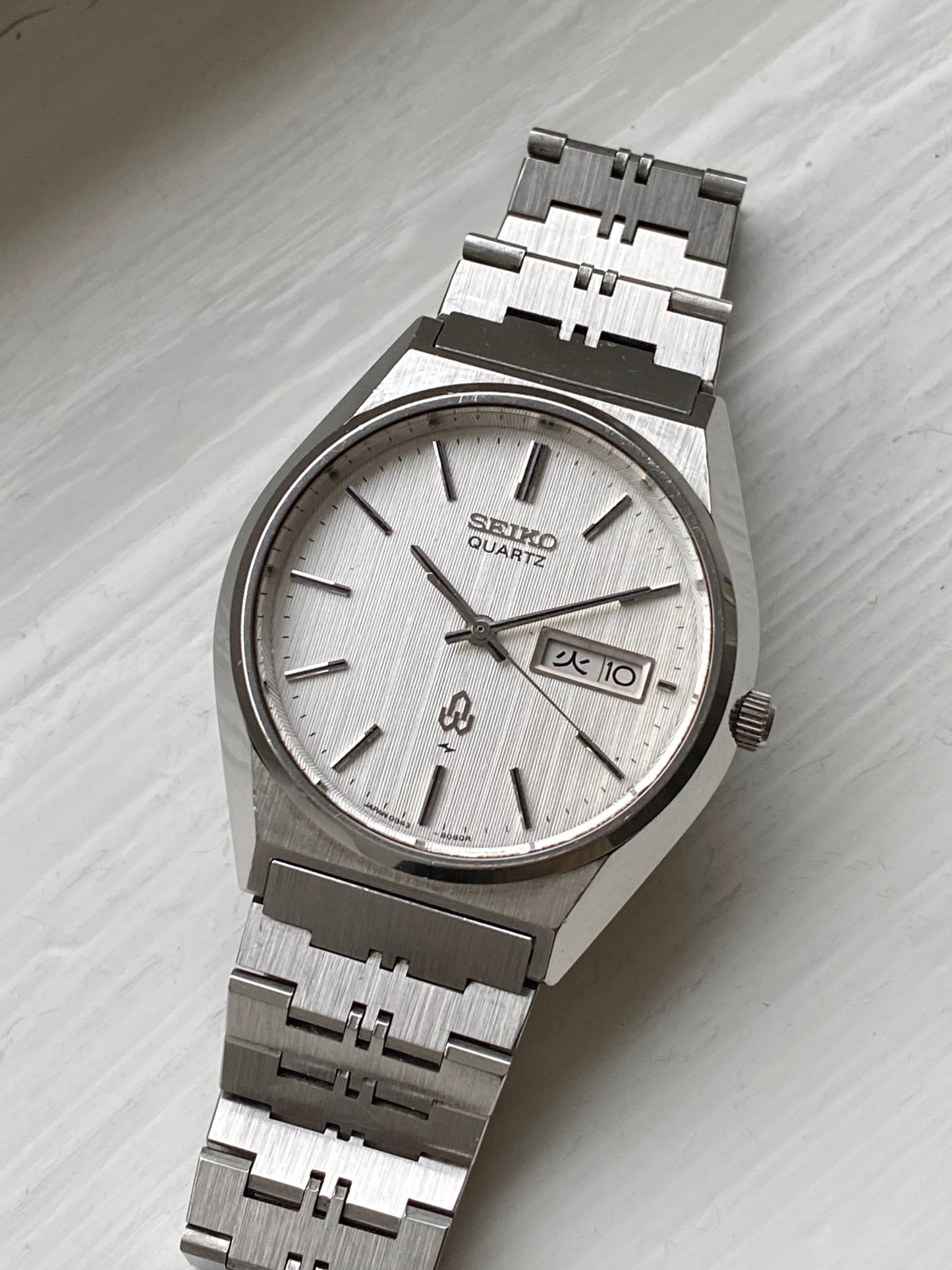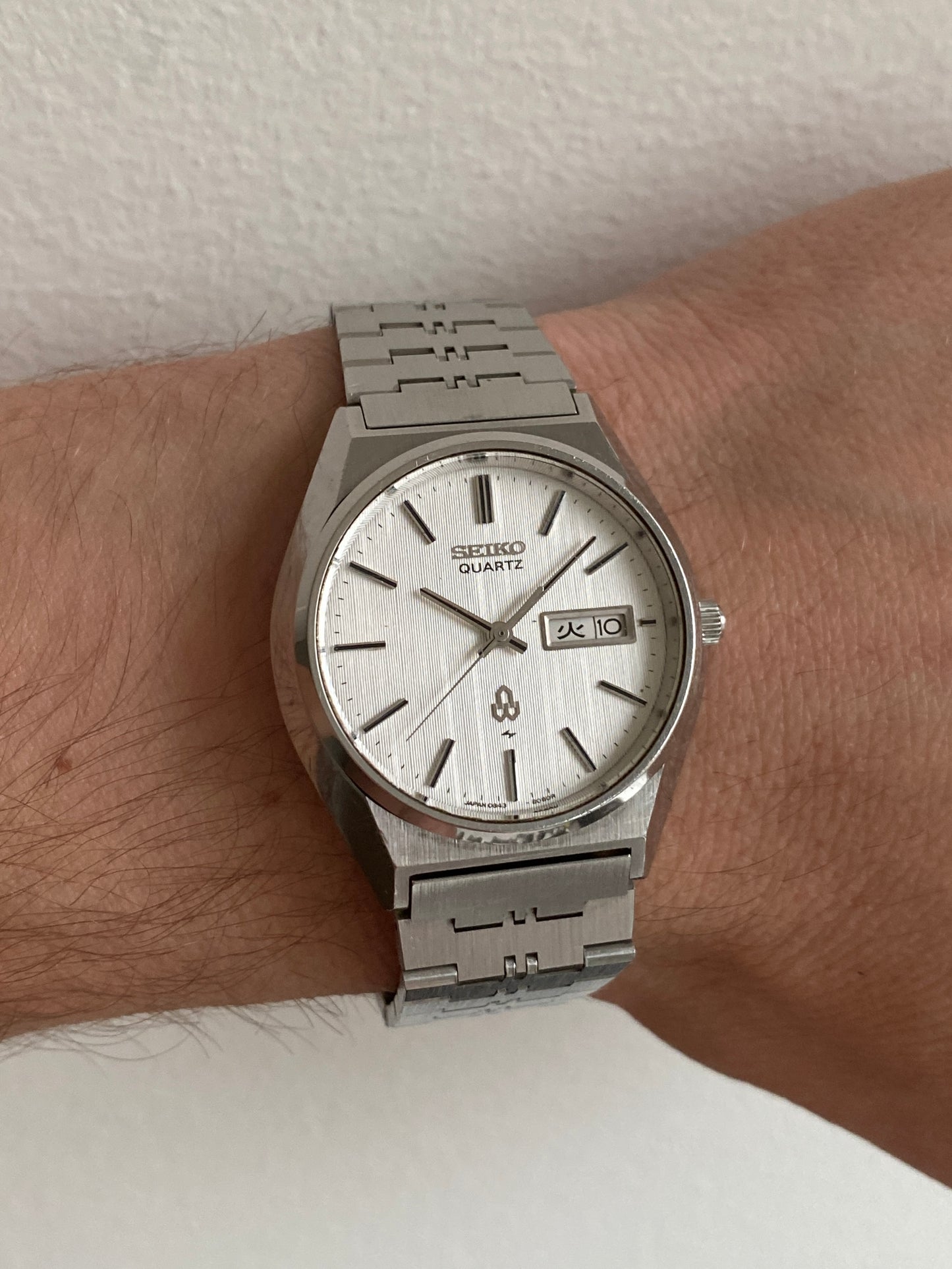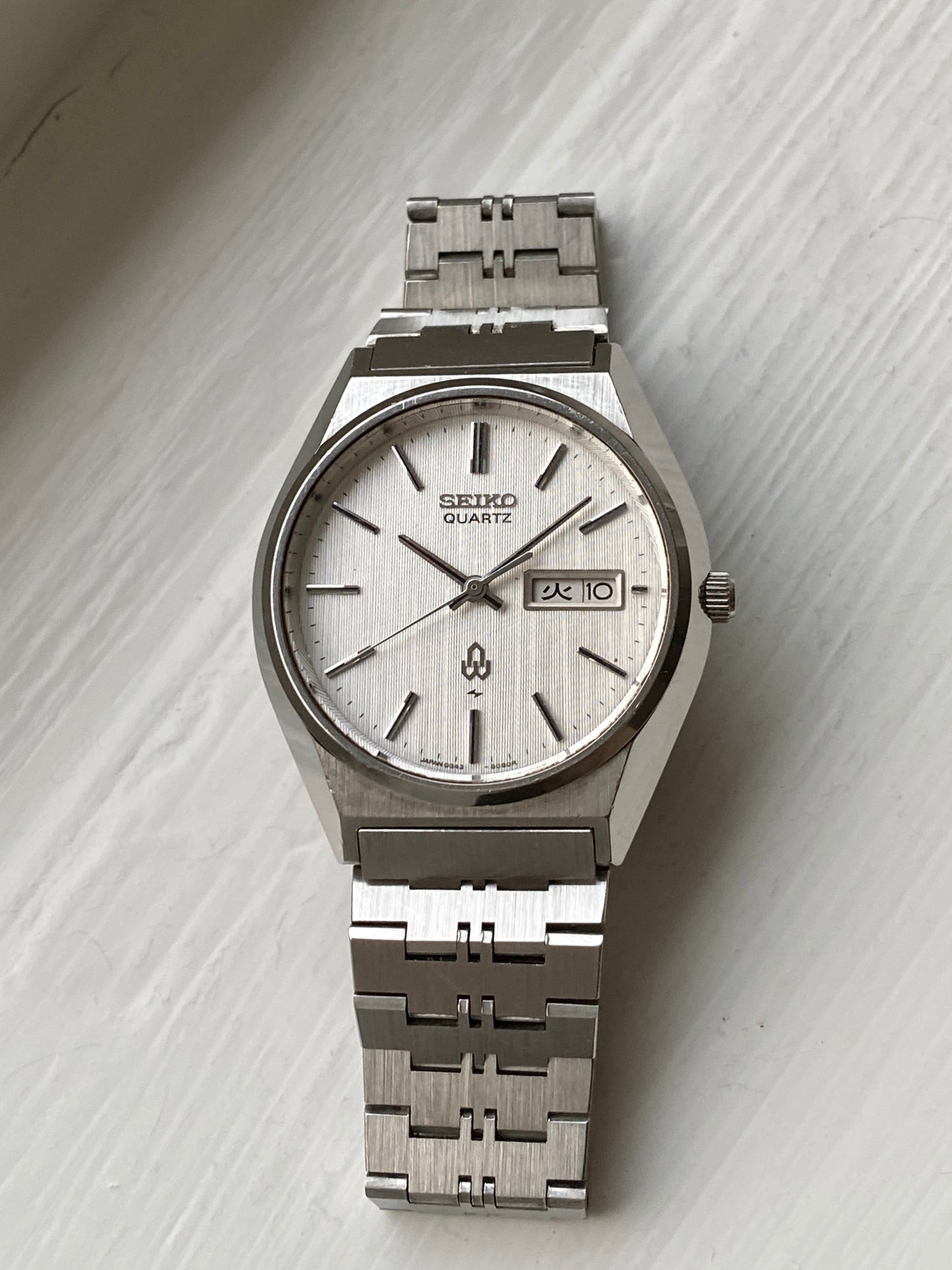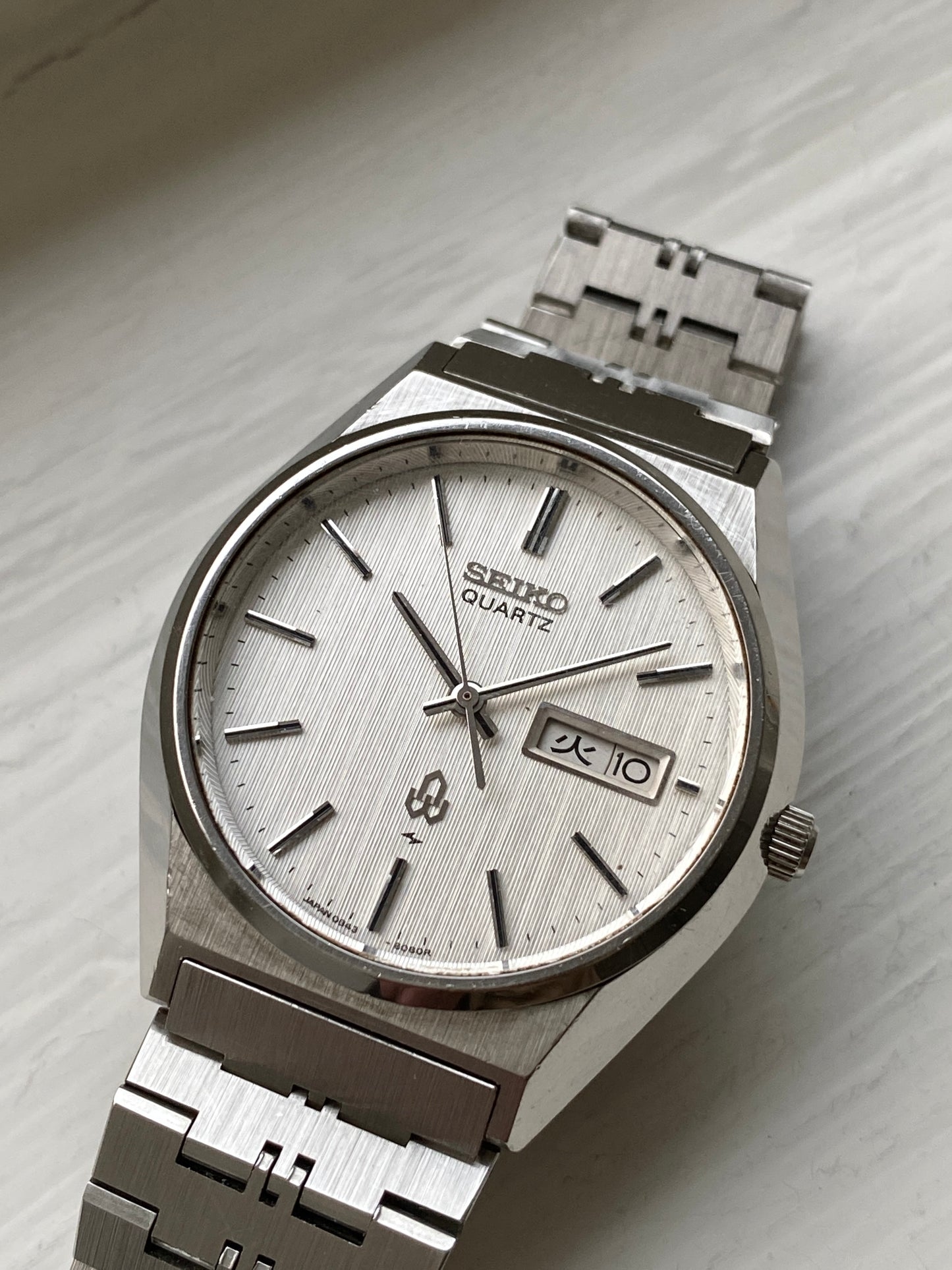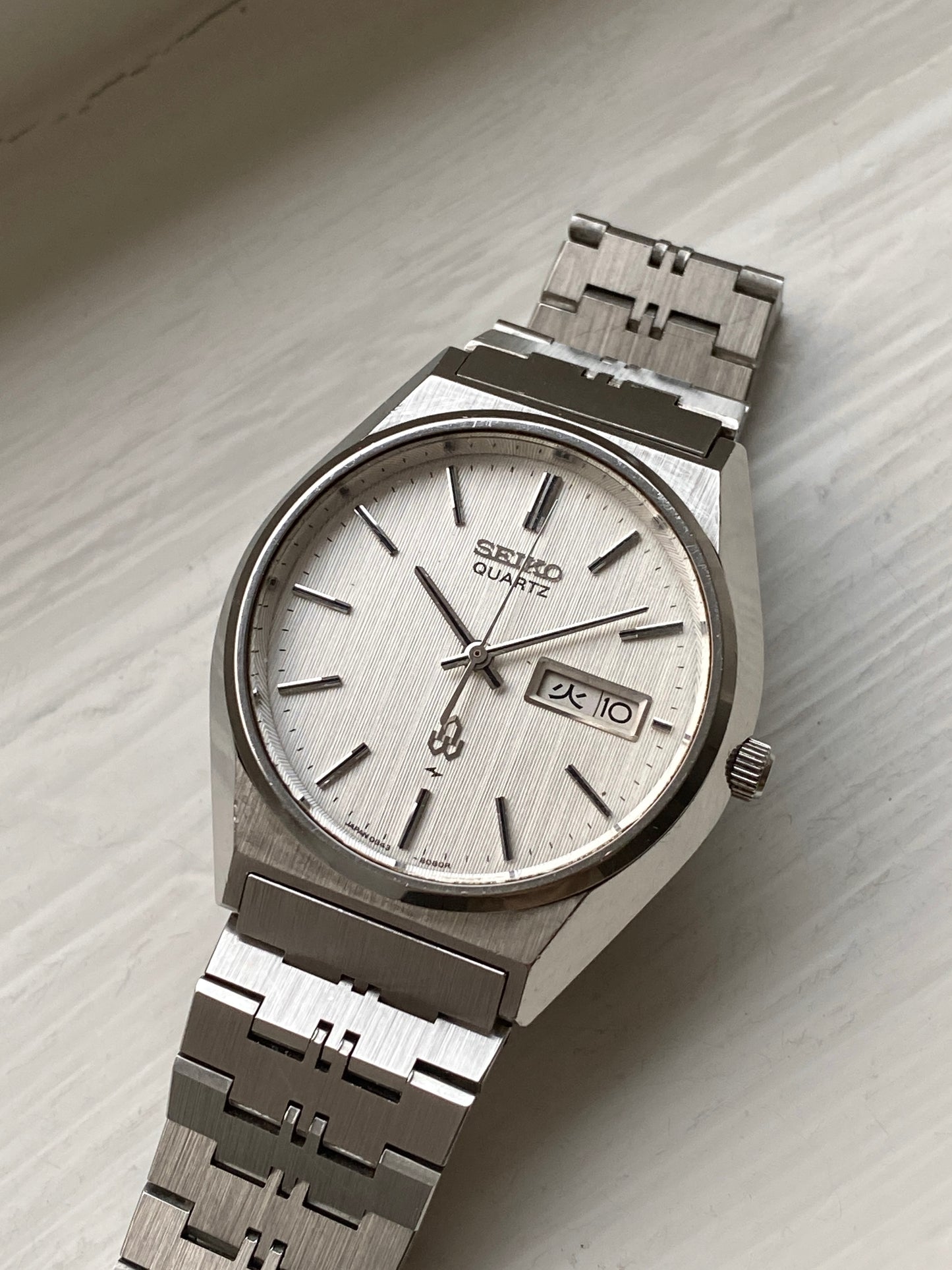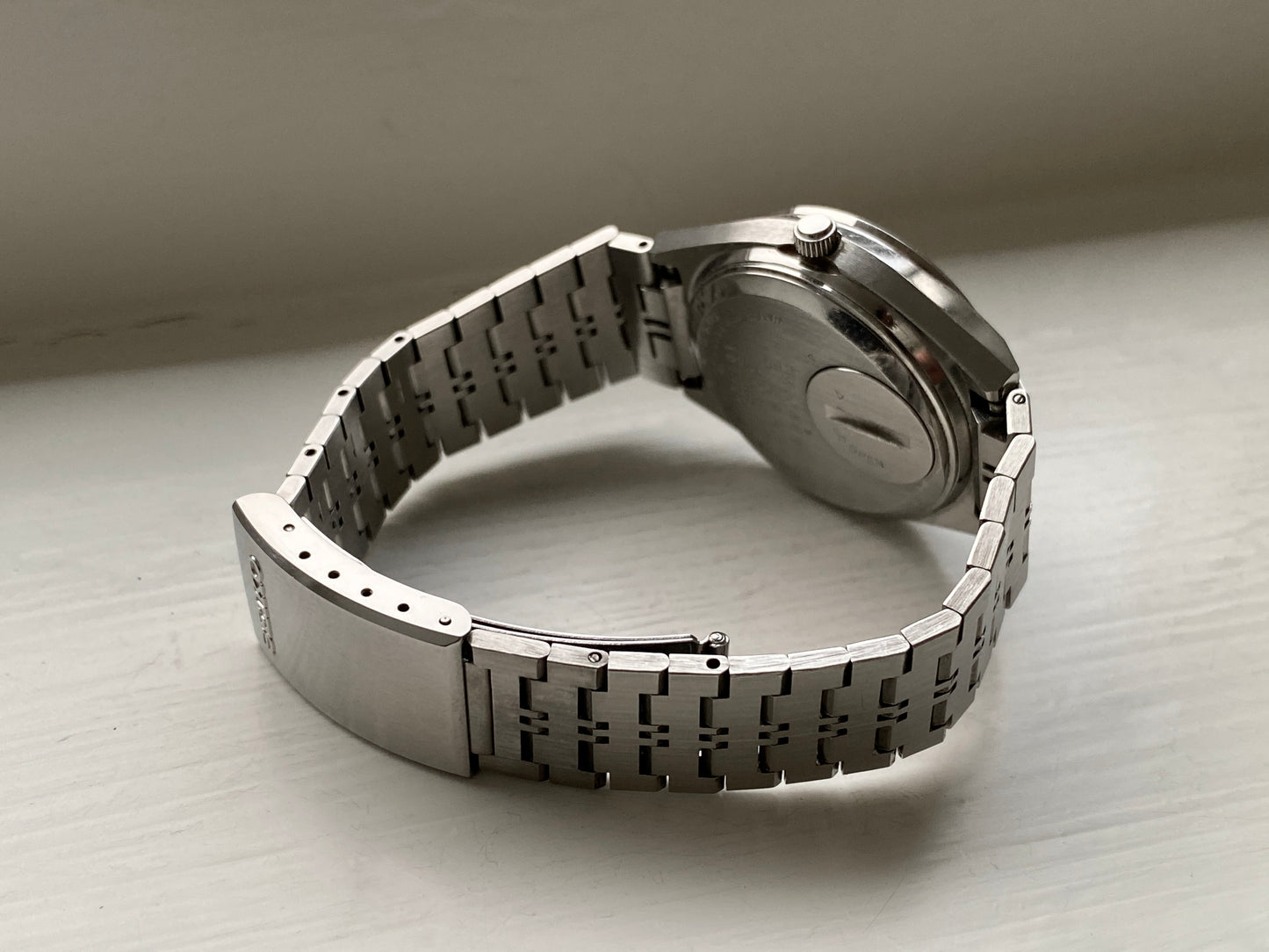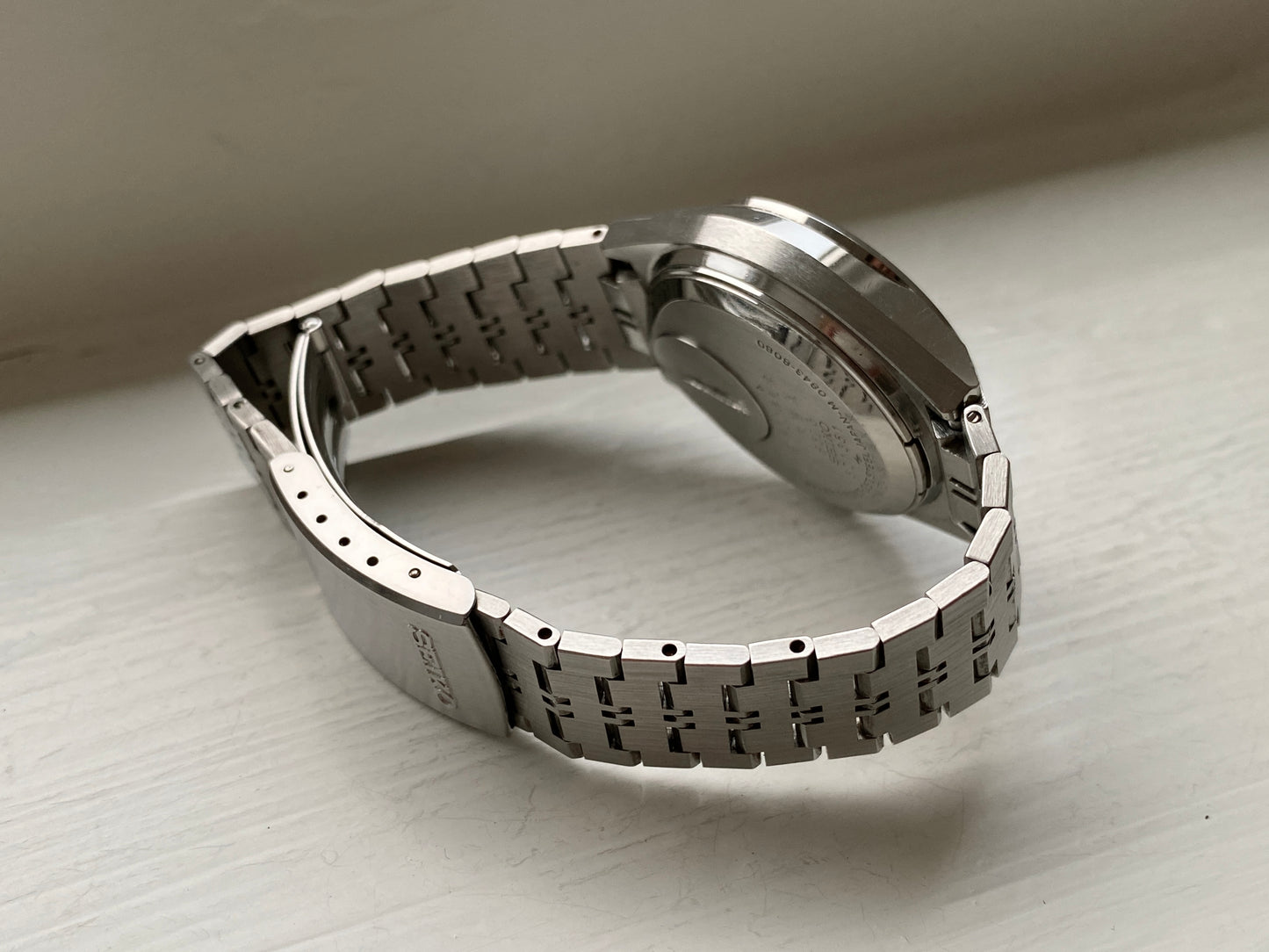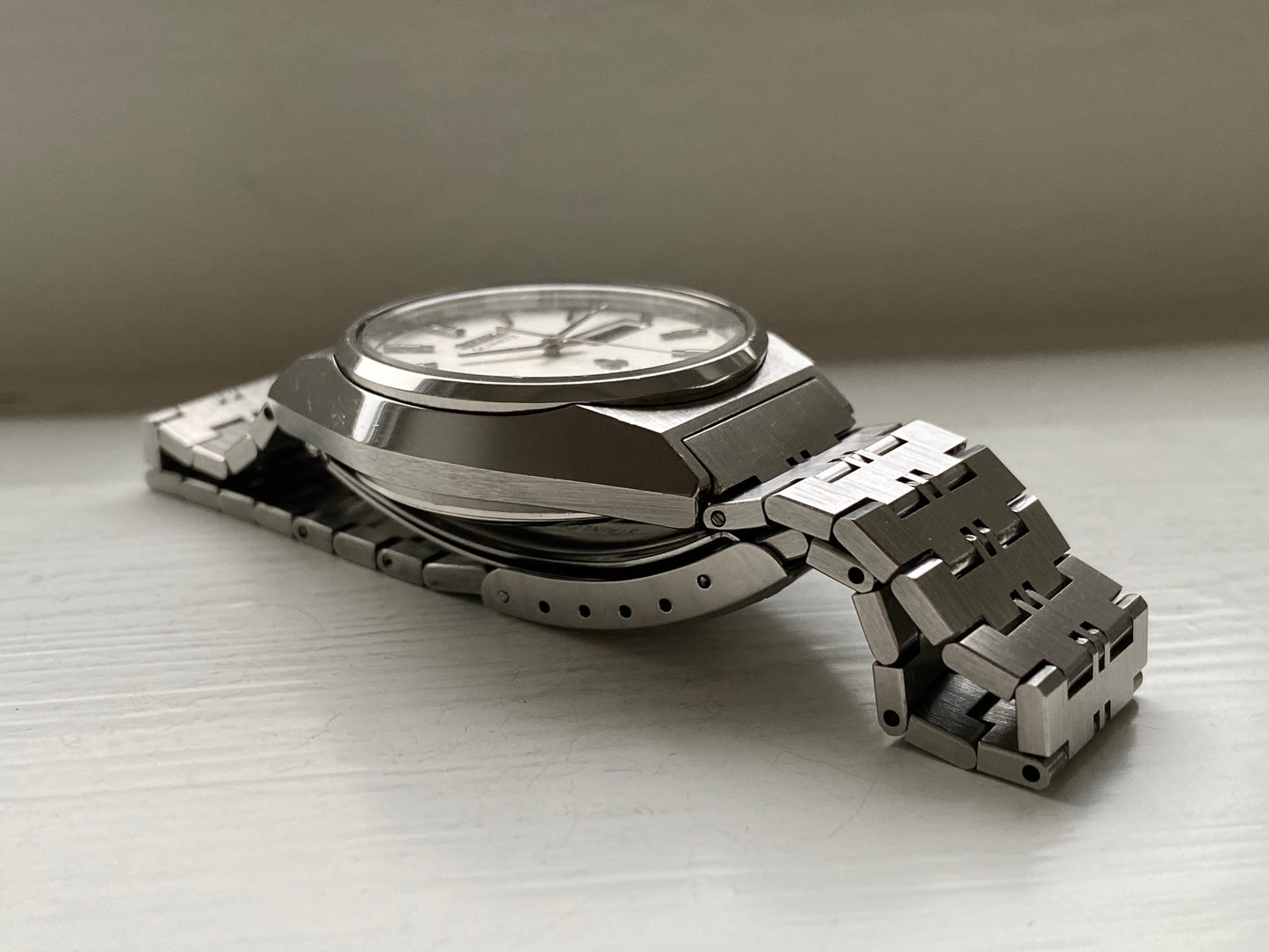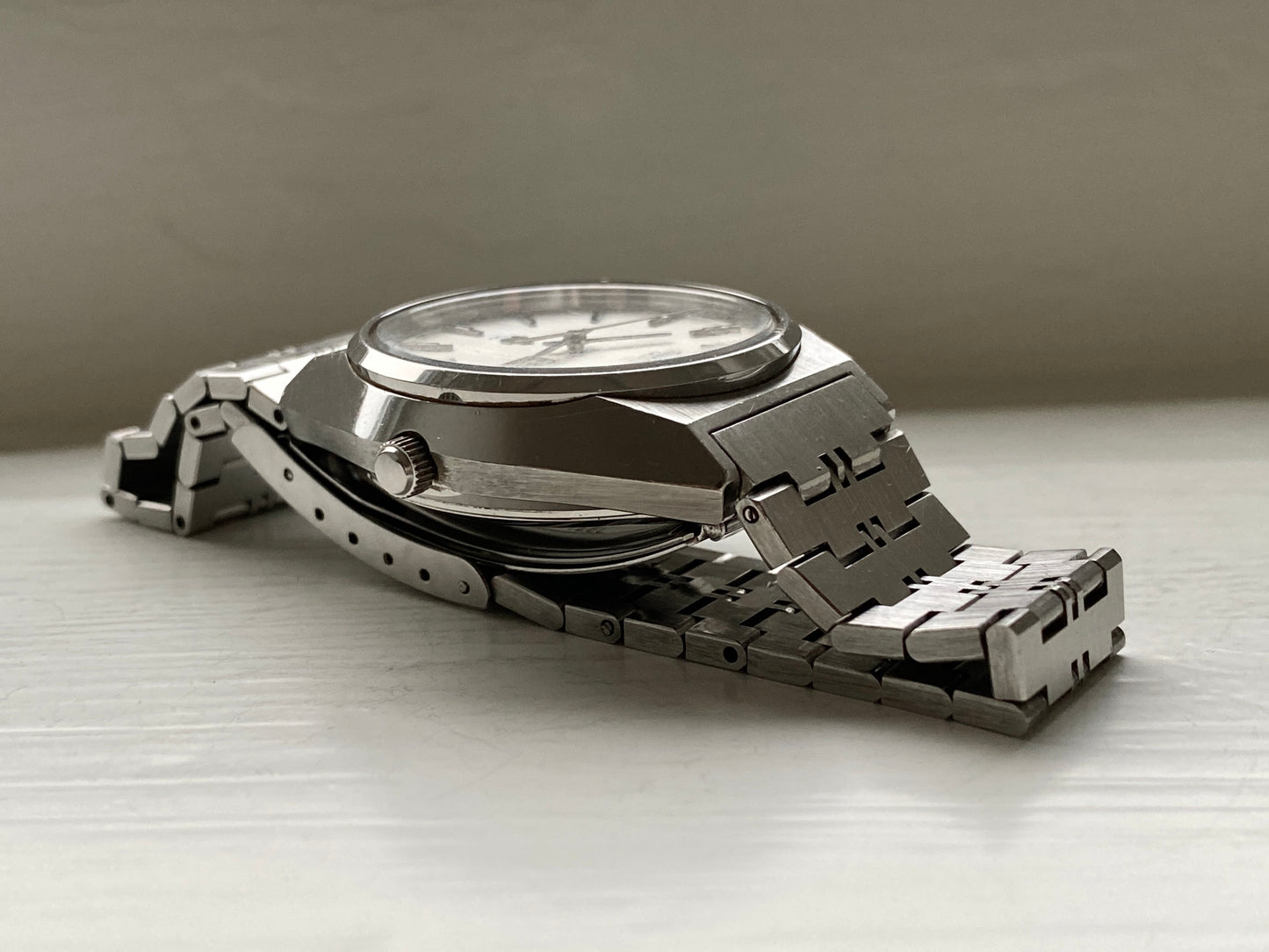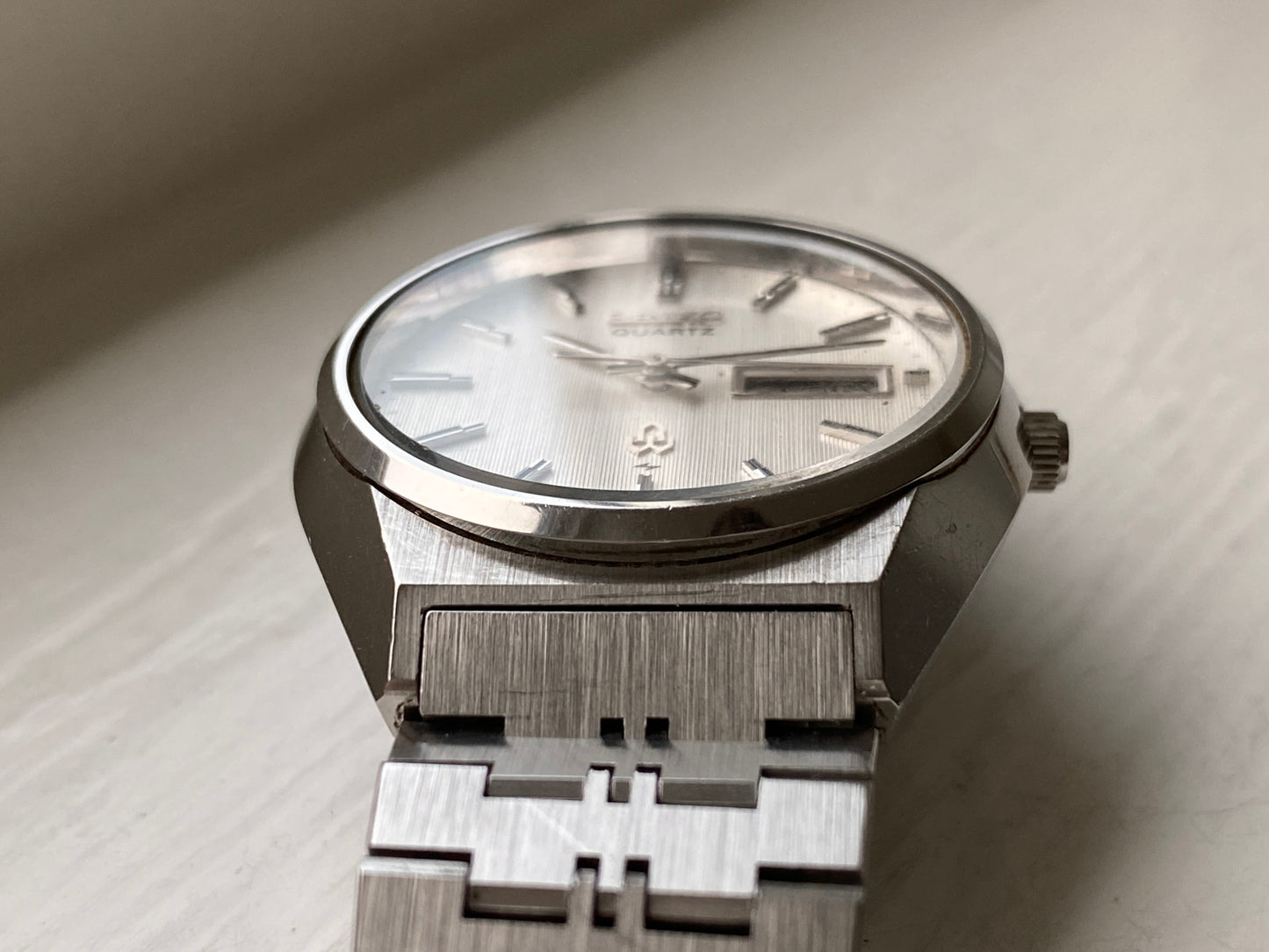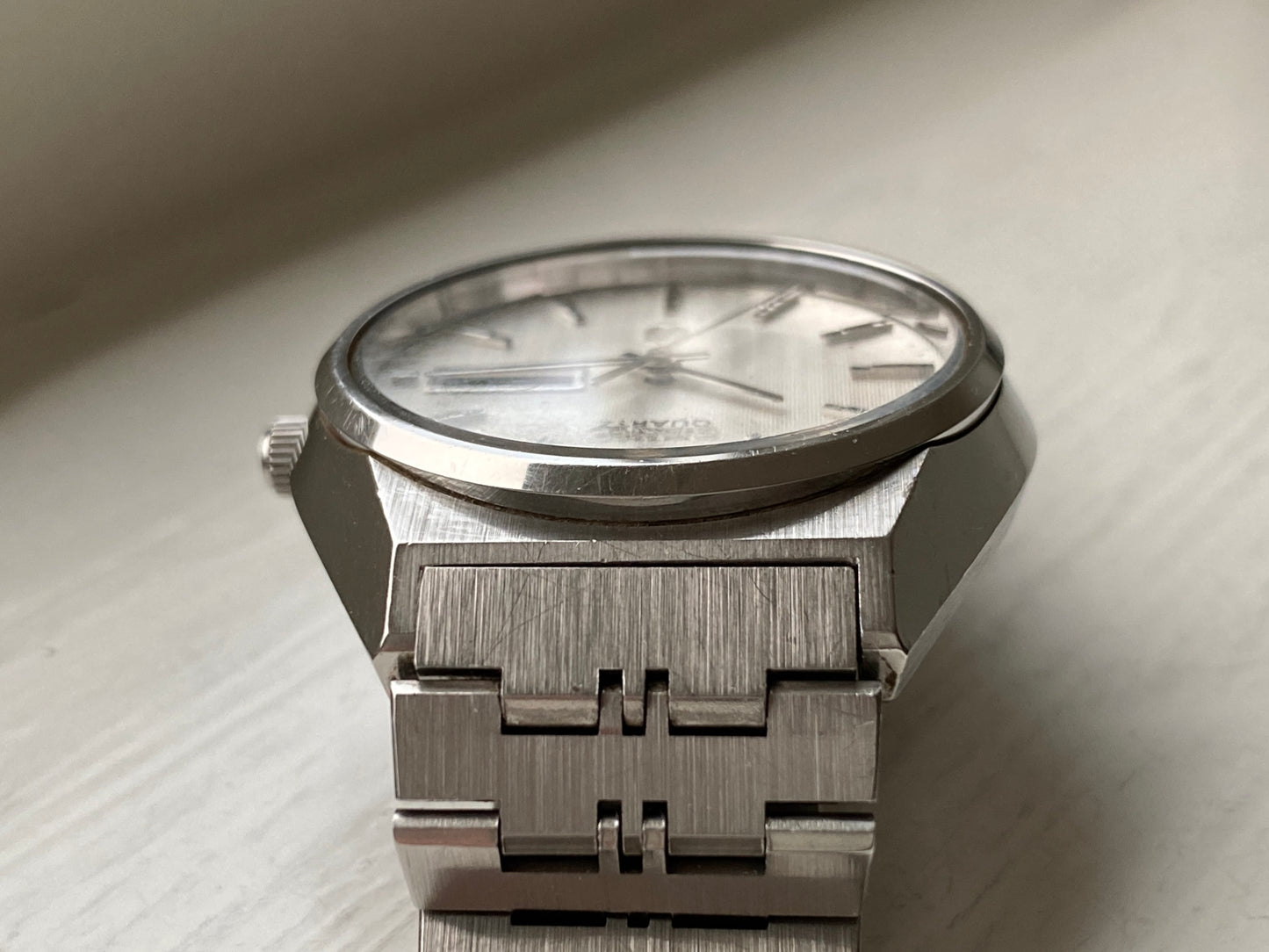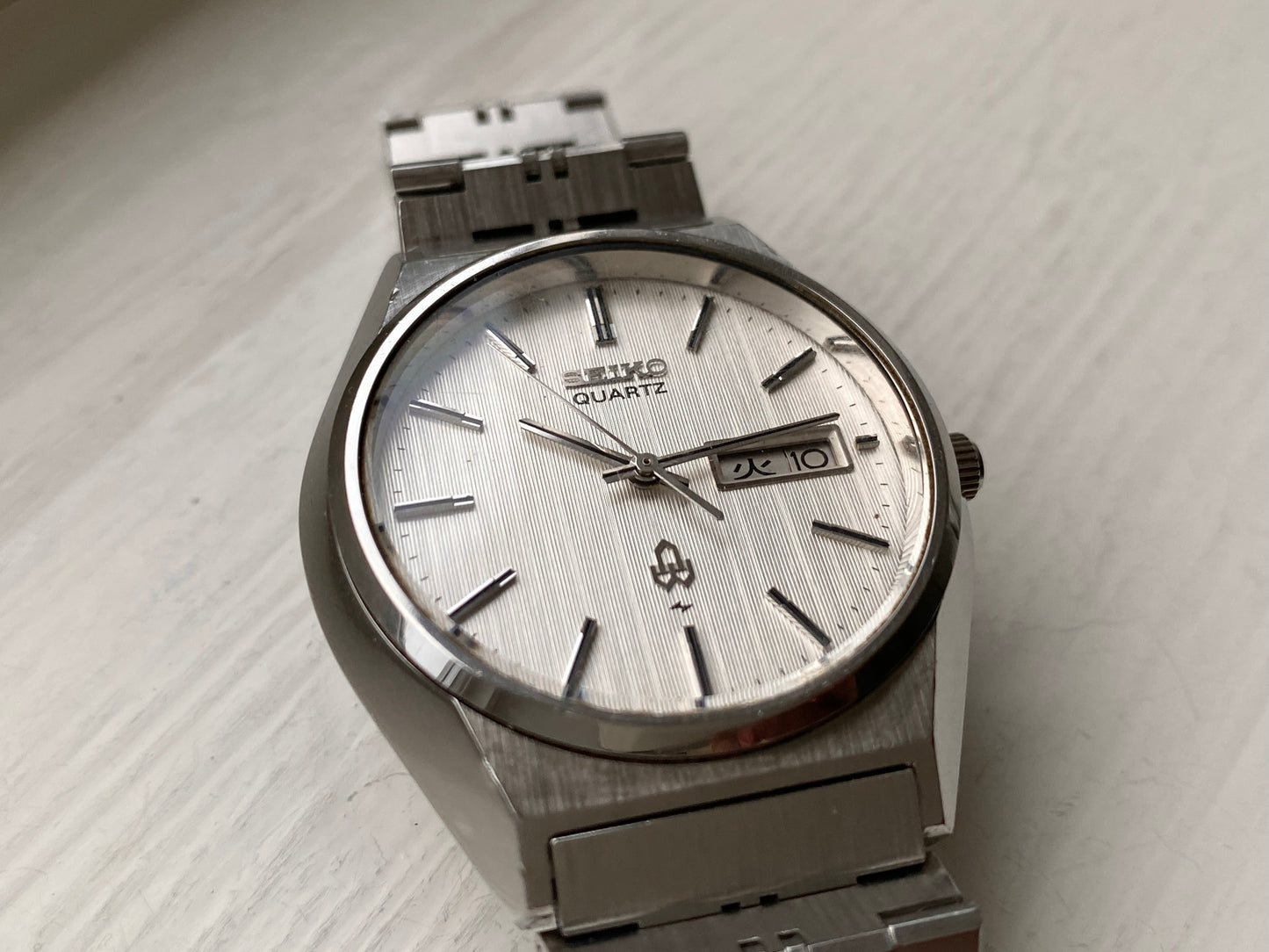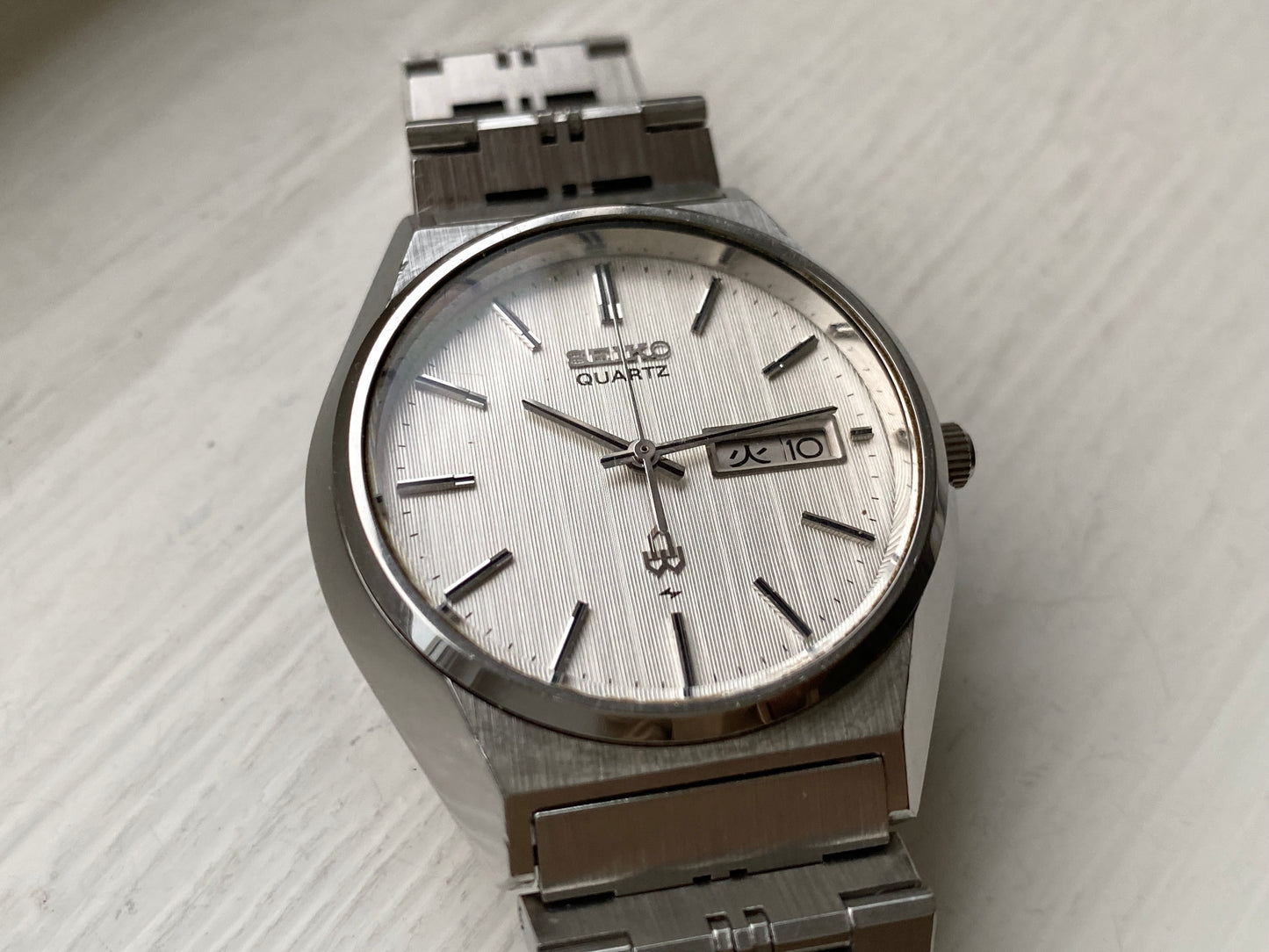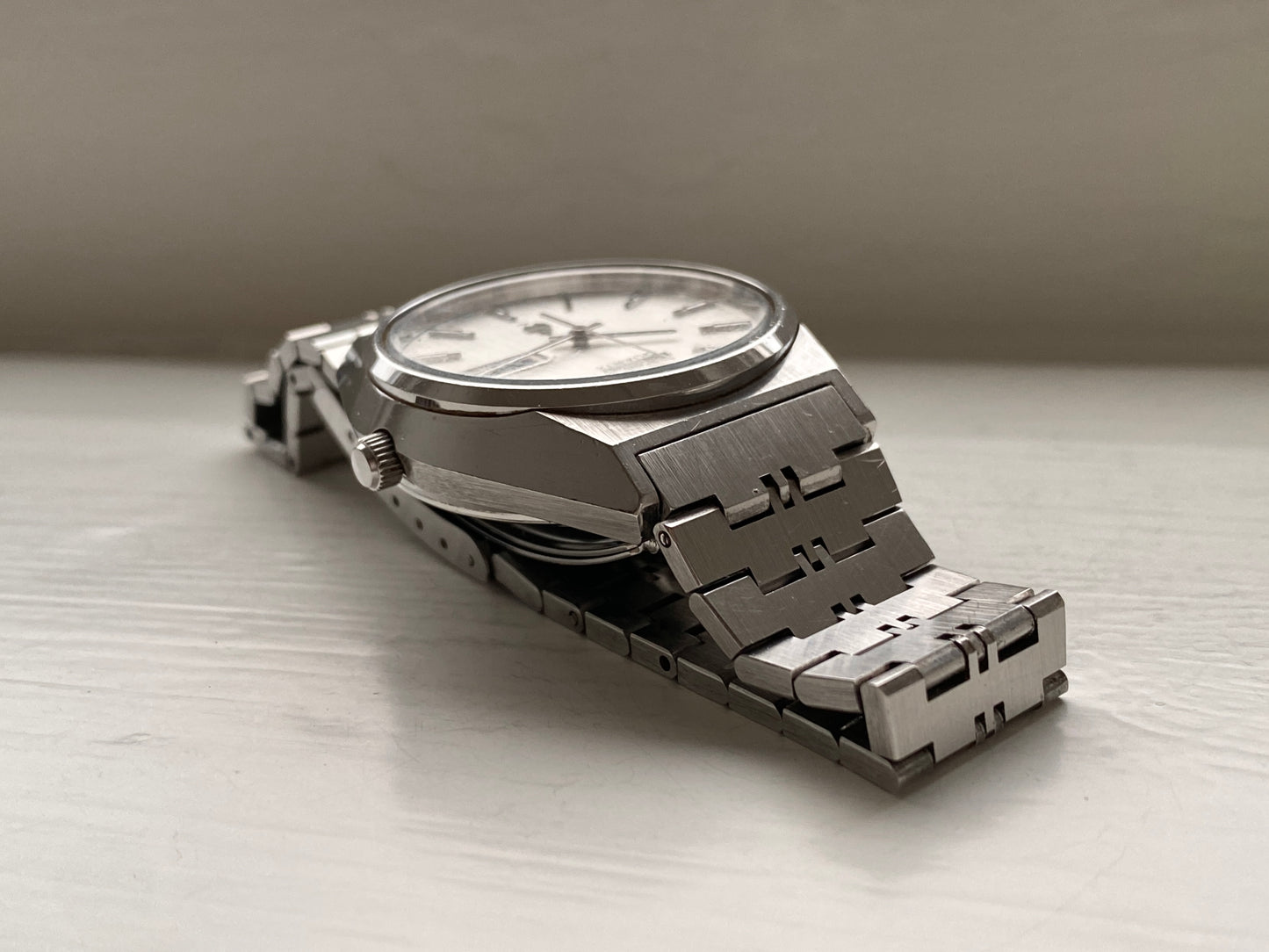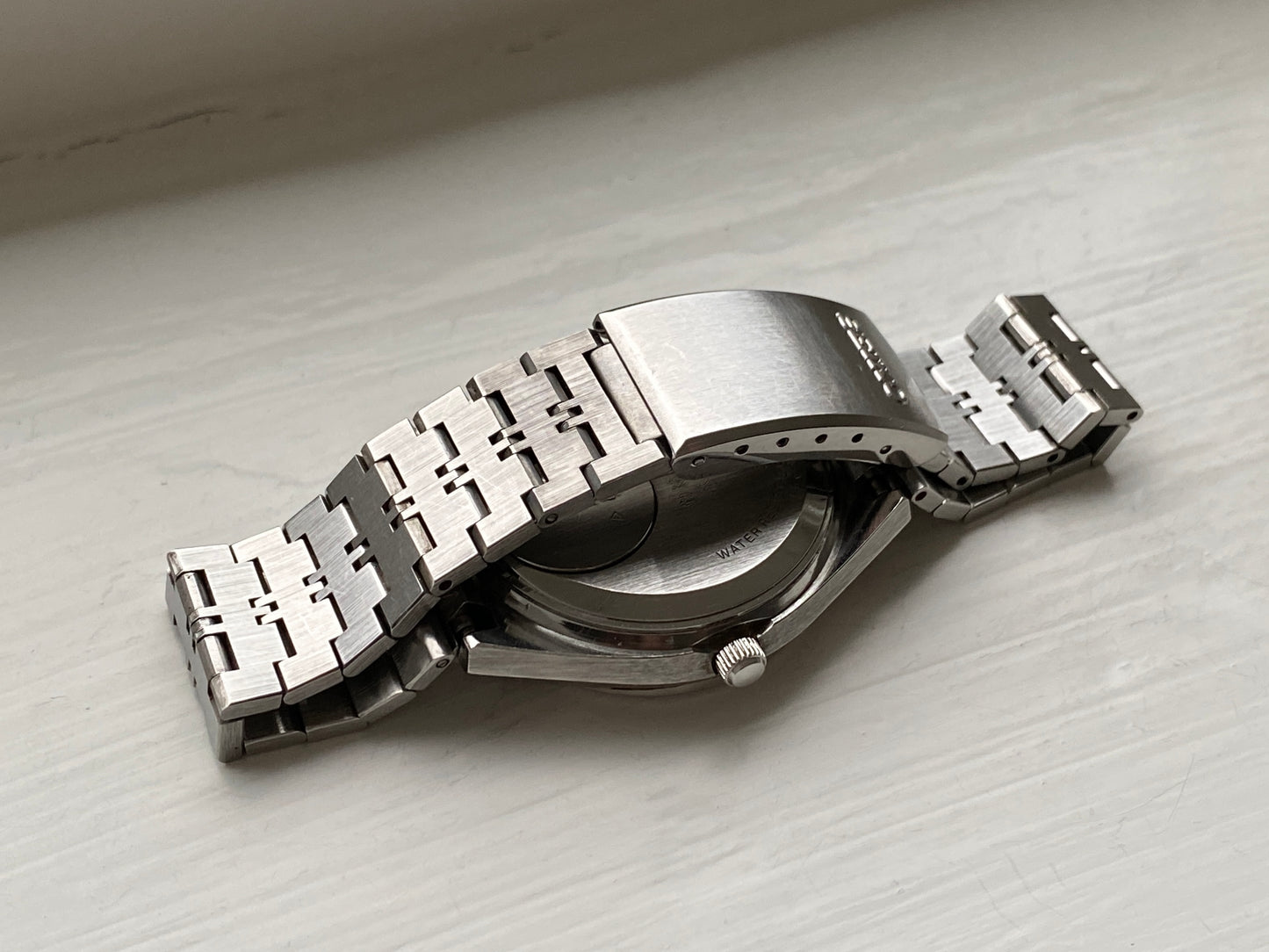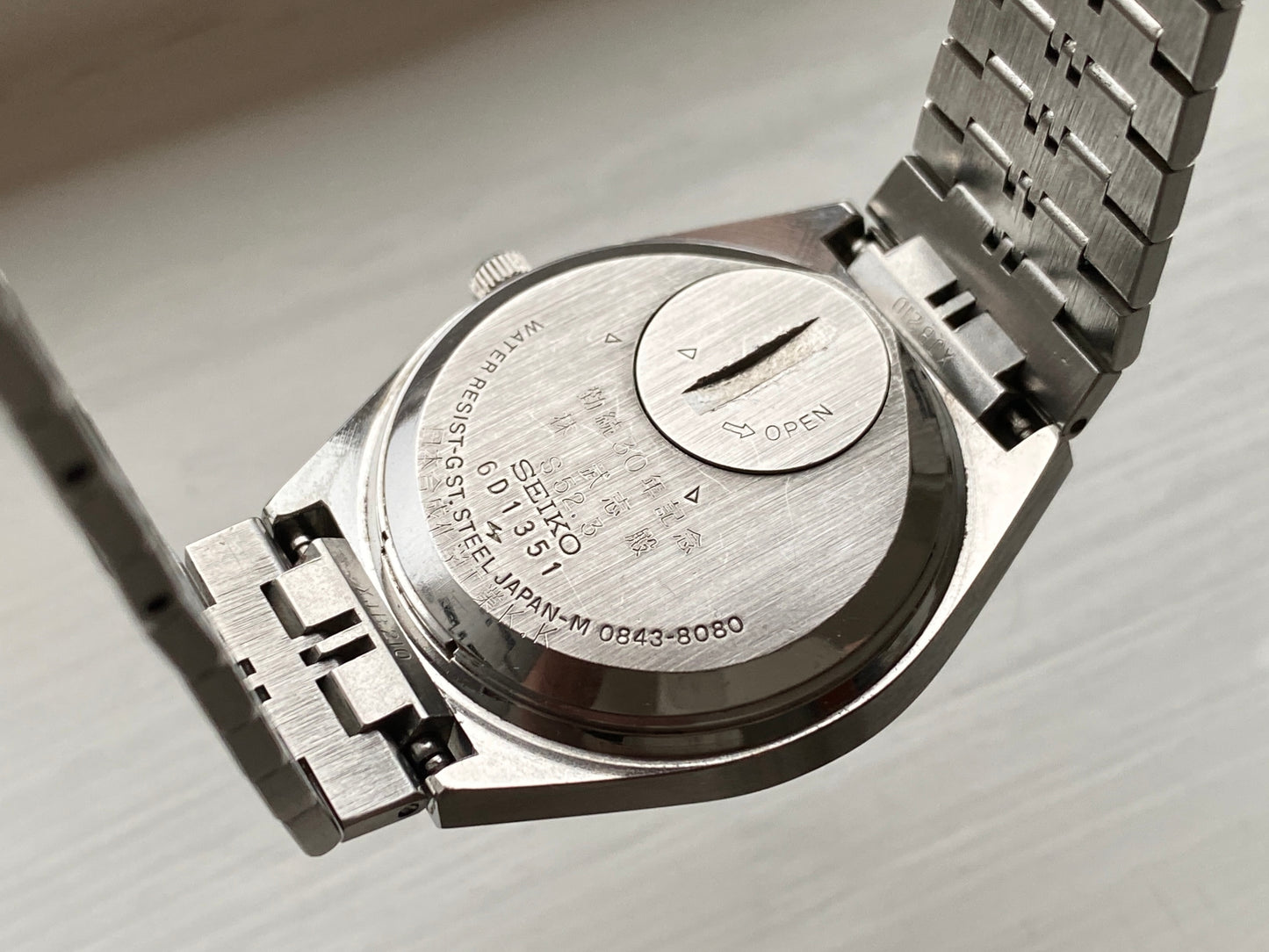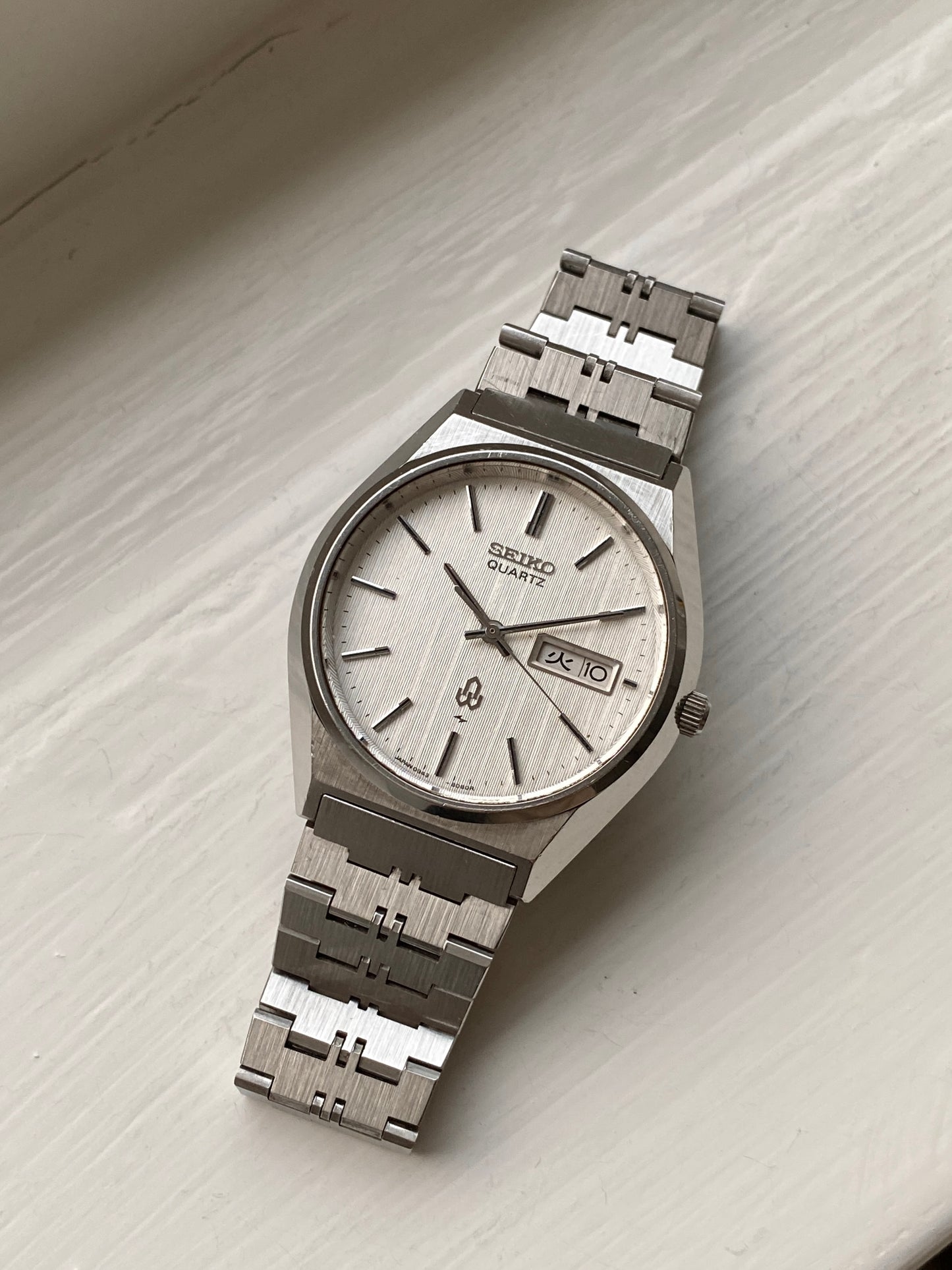Seiko Quartz 0843-8080
Seiko Quartz 0843-8080
Couldn't load pickup availability
|
Brand |
Seiko |
|
Model |
Quartz |
|
Reference |
0843-8080 |
|
Year |
1976 - December |
|
Movement |
Quartz |
|
Extras |
New battery hatch gasket |
|
Dial |
White ribbed |
|
Jewels |
9 |
|
Case |
37mm |
|
Lugs |
18mm |
|
Day/date |
Day and date |
|
Crystal |
Mineral |
|
Bracelet |
XJB210 |
|
Performance |
±10 seconds per month |
|
Box/papers |
Not included |
|
Condition |
Very good |
The watch
Seiko Quartz from 1976 in very good condition. A watch from the early days of quartz, which means it has a high-quality movement with 9 jewels. The white dial showcases a subtle ribbed texture. Everything works as it should.
The unpolished case and bracelet bear signs of use, as expected for a vintage piece, and the crystal has a few minor scratches. Despite these, the watch remains in very good condition overall. One note: the red letters marking Sunday have faded over time, a natural result of age. The battery hatch gasket has been replaced.
Details
This watch was produced at the Daini Seikosha factory and carries a unique historical touch. An engraving on the caseback reveals it was a commemorative gift, translating to: “30 years of service at Nippon Synthetic Chemical Industry Co., Ltd.”
The quartz crisis
The "quartz crisis," also known as the "quartz revolution," refers to a period in the late 20th century when the Swiss watch industry faced significant upheaval due to the rise of quartz technology. This technological shift began in the 1960s and 1970s, primarily driven by Japanese companies like Seiko.
Quartz watches, which use a battery-powered quartz crystal to keep time, offered several advantages over traditional mechanical watches. They were more accurate, less expensive to produce, and required less maintenance. Seiko, a pioneer in quartz technology, introduced the world's first quartz watch, the Astron, in 1969. This innovation demonstrated that quartz watches could offer precision and affordability, challenging the long-standing dominance of Swiss mechanical watches.
The Swiss watch industry, which had long been revered for its craftsmanship and mechanical expertise, struggled to adapt to this new technology. Many Swiss companies initially underestimated the impact of quartz watches and were slow to innovate. As a result, they faced financial difficulties and market share losses. The quartz crisis led to the decline or bankruptcy of several traditional Swiss watchmakers and forced the industry to undergo significant restructuring.
Ultimately, the quartz crisis reshaped the watch industry, leading to a renewed focus on innovation and a blend of traditional and modern technologies. The Swiss watch industry eventually rebounded by incorporating quartz technology alongside their mechanical expertise.
